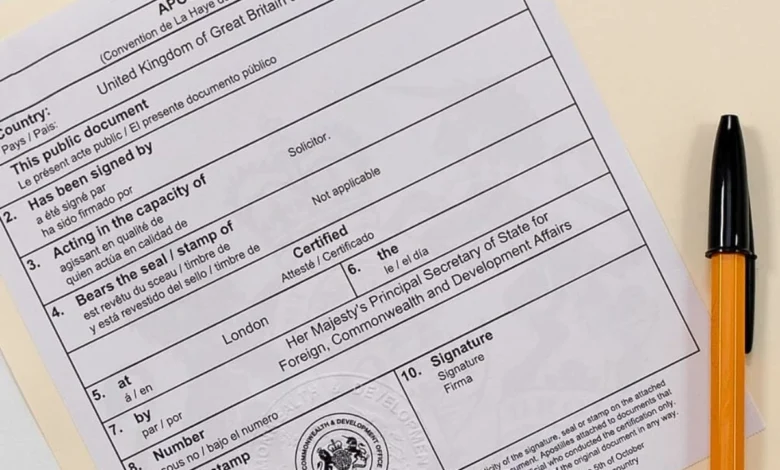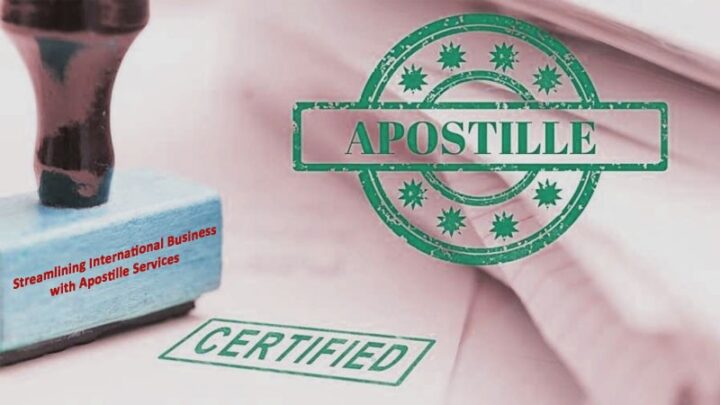Corporate Clarity: Apostilling Business Documents for Global Ventures

As business becomes more interconnected by the day, the importance of corporate clarity cannot be overstated. Companies are now participating in an increasingly globalized environment where cross-border dealings are commonplace. Achieving transparency in operations and communications is imperative, not only to foster trust among international partners but also to move smoothly through the complex web of global trade regulations. A thorough understanding of legal procedures, such as document authentication, is important for businesses planning to expand their reach beyond their home country.
Document authentication is a necessary step for any business looking to undertake international ventures. One key process is the apostille certificate—a form established by the Hague Convention of 1961—which is recognized by over a hundred countries worldwide. Apostilling documents is a means to certify the legality and legitimacy of documents for use abroad, assuring that they are recognized by foreign nations as authentic. This legal framework for document authentication simplifies the international verification process, removing potential barriers for companies and promoting smoother international cooperation and transactions.
The Apostille Convention and International Business

Dealing with international business transactions often requires the exchange of official documents across borders. This is where the Hague Apostille Convention comes into play as a key facilitator. Simply put, an apostille is a certification provided under the Hague Convention of 1961 for the purpose of authenticating documents for use in foreign countries. The function of an apostille can be likened to notarization, but it goes a step further by imparting global recognition to the document it verifies.
Whether it’s a power of attorney or a birth certificate, an apostilled document bears a stamp or a seal, which member countries of the convention recognize, eliminating the need for further legalization. This streamlined process not only saves time but also increases the credibility and acceptance of official papers on an international stage, simplifying the execution of contracts, establishment of new business ventures, and even personal moves like overseas studies or immigration. The value of apostilled documents then, is in their capacity to bridge bureaucratic divides and foster trust between transnational partners.
Preparing Documents for the Apostille Process
International business endeavors often require ensuring that your documents are recognized across borders, and this is where the apostille process comes in. To begin with, it’s important to identify which business documents need an apostille; these typically include articles of incorporation, power of attorney, and various certificates related to finance and trade. The key to preparing your documents correctly is attention to detail. Every document must be accurate, with proper letterhead, signatures, and notarization where necessary—meeting the specific requirements of the destination country.
Many individuals encounter common pitfalls during preparation, such as overlooking minor errors, failing to include necessary detail, or submitting outdated forms. To prevent delays or rejection, double-check for accuracy, adhere to the latest guidelines, and ensure all information is up-to-date. Being thorough and precise will help facilitate a smoother apostille process.
A Step-by-Step Guide to the Apostille Process

Beginning the apostille process can seem daunting at first, but with a clear step-by-step plan, you can move through it smoothly. The process typically begins with identifying the documents you need to apostille, whether they’re personal, educational, or legal papers. Once pinpointed, make sure they are in the correct format and signed by the appropriate authorities. The next phase involves submitting these documents to the designated state or federal office, often the Secretary of State or similar authority.
Timeframes can vary depending on the office and the current workload; it’s reasonable to expect the process to take anywhere from a few days to a couple of weeks, so plan accordingly. It’s necessary to stay informed and possibly track the progress, as each step may have its own set of timeframes. As for responsibilities, the initiator of the process is responsible for providing accurate, properly formatted documents and any required fees, while the official body is obligated to verify the documents’ authenticity and apply the apostille seal.
Analyzing the Pros and Cons of Apostille Certification
When considering the apostille authentication process for international document recognition, it’s important to evaluate the expenses and compare them with the benefits. Securing an apostille may include costs for official certification from the originating government authority, as well as potential surcharges for rush processing or overseas delivery options when needed. Although these expenses may appear considerable initially, the advantages often outweigh the outlay.
Documents with an apostille are internationally accepted as per the Hague Apostille Convention, which streamlines cross-border dealings and legal formalities. This accreditation shows trustworthiness and can prevent the time and financial resources typically needed for additional verification steps or legal disputes. Opting to apostille documents means individuals and enterprises are choosing to fortify their reputation and ease their international engagements.
Best Practices for Maintaining Corporate Clarity with Apostilled Documents

When it comes to international business, the importance of maintaining corporate clarity with apostilled documents is key. Implementing an effective system for tracking and managing these documents is necessary, as it helps ensure that all apostilled documents are accounted for and easily accessible when needed. This is not just for organizational purposes but for maintaining the integrity of the business transactions.
Equally important is training staff to handle the subtle aspects of international document authentication with competence. When employees are well-versed in the processes involving apostilles, it minimizes the risk of errors and delays that could hinder international dealings. With the changing nature of international law and requirements, companies must prioritize staying updated. This proactive approach not only enables a company to operate within legal bounds but also allows for smooth cross-border engagements, reflecting well on the company’s commitment to global compliance and reliability.
The apostille has become a cornerstone for global business ventures. Its importance cannot be overstated as it provides a key layer of authenticity to corporate documents, enabling them to be recognized internationally. This recognition is necessary for companies seeking to operate across borders, as it eliminates potential legal barriers and streamlines the bureaucratic process. It is important for businesses to prioritize the clarity and legitimacy of their documents through proper authentication. By doing so, corporations can effortlessly expand their horizons, break into new markets, and foster international relationships with confidence.
